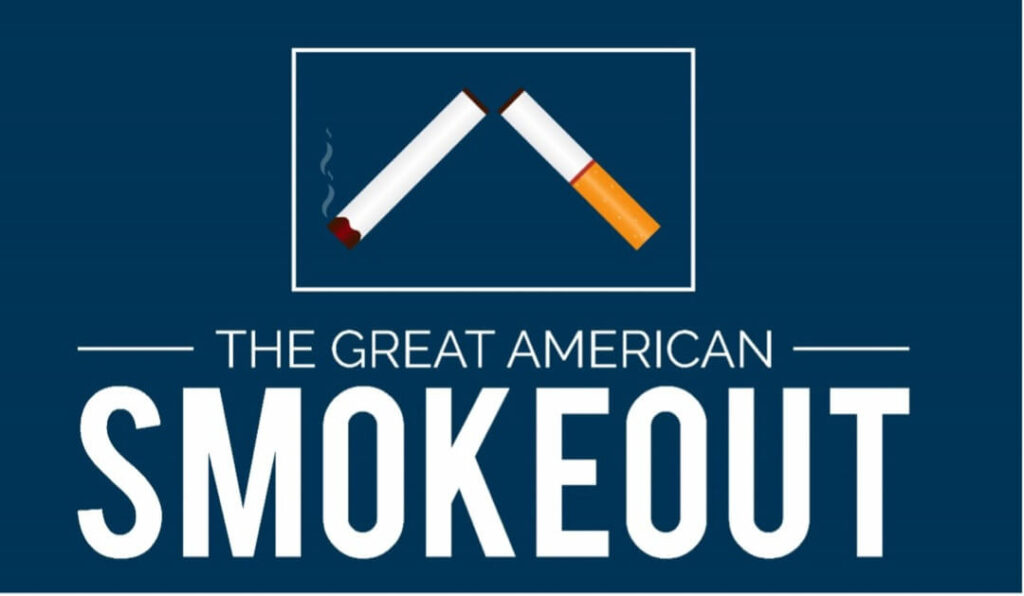
Sponsored by The American Cancer Society, the Great American Smokeout takes place on the third Thursday each November (November 17) and challenges smokers to give up cigarettes for 24 hours.
The event encourages smokers to use this day to make a plan to quit, or to plan in advance and quit smoking on that day.
Why is this event so important? Although smoking has declined over the past several decades, about 34 million Americans still smoke tobacco. Each year, more than 480,000 people in the US die from a smoking related illness; that means smoking causes 1 out of 5 deaths in the US alone.
The nicotine in cigarettes is one of the strongest addictions a person can have – which makes quitting hard, and even seemingly impossible. But a smoker’s chance of success goes up exponentially with the help of support and a plan. With counseling and proven cessation medications, you can double or even triple your chances of quitting for good.
Ready to start your journey towards a smoke-free life? Remember, you have the Great American Smokeout, and the American Cancer Society, in your corner. They have many tools and resources to help you succeed. Click here to learn more.
How to observe the Great American Smokeout:
- Create a plan: Research alternatives to curb nicotine cravings and ensure you have a support system to help. If someone you know is quitting, research how you can support them during this time.
- Discard anything smoking-related: Remove all smoking related items from your home including cigarettes, ashtrays, lighters, etc. Be sure to remove items from your vehicle and workplace too. Replace them with substitutes like gum or crunchy snacks.
- Reflect on your smoking past: If you tried to quit before, take the time to think about your past attempts, why it didn’t work and what you can do differently this time.
No matter your age or how long you’ve been smoking, quitting can help your health both immediately and over the long term. The American Cancer Society’s website offers resources, inspiration and tips to help you increase your chances, or help you help a loved one increase their chances, of quitting successfully.
Source: cancer.org
